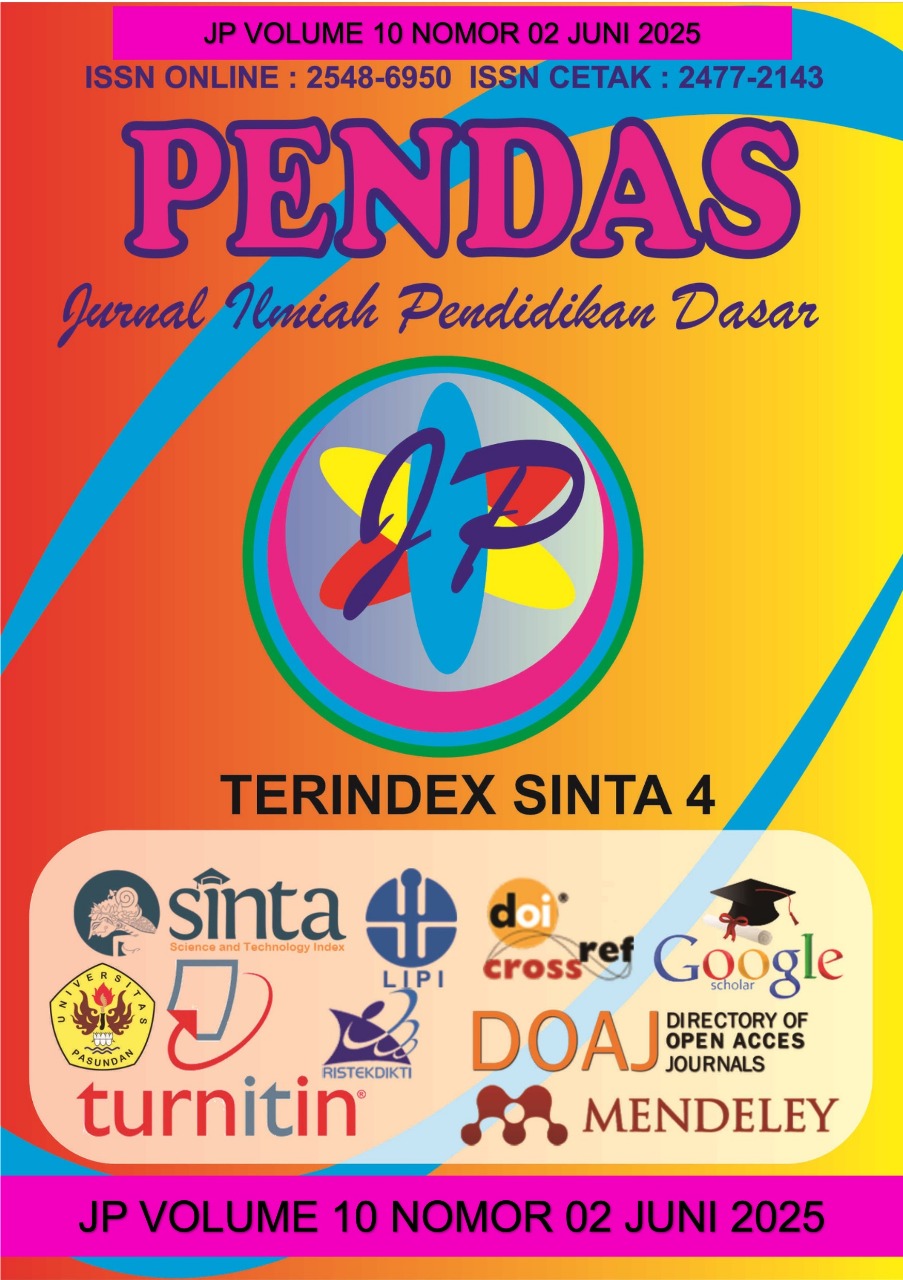PENDIDIKAN INKLUSIF DI INDONESIA: STUDI PUSTAKA ATAS PERKEMBANGAN, TANTANGAN, DAN STRATEGI IMPLEMENTASI
DOI:
https://doi.org/10.23969/jp.v10i2.26923Keywords:
education policy, inclusive education, special needs education, implementation strategyAbstract
This study examines the development, challenges, and implementation strategies of inclusive education in Indonesia. Inclusive education is a fundamental right that ensures all individuals, including those with special needs, have access to quality education without discrimination. Despite the existence of various national policies supporting inclusive education, significant barriers remain in practice, including limited resources, inadequate teacher training, and persistent social stigma towards children with special needs (CWSN). This literature review aims to identify the key challenges faced in the implementation of inclusive education and to propose effective strategies based on recent academic research. The findings reveal a gap between policy and practice, highlighting the need for comprehensive approaches that address both theoretical frameworks and practical solutions. The study contributes to the ongoing discourse on inclusive education by providing actionable recommendations for policymakers, educators, and stakeholders to enhance the quality and accessibility of education for all students in Indonesia.
Downloads
References
Amalia, N., & Kemal, I. (2022). Penggunaan Model Learning Start With Question dalam Menulis Kesimpulan Informasi. Fon: Jurnal Pendidikan Bahasa Dan Sastra Indonesia, 18(2), 323–330. https://doi.org/10.25134/fon.v18i2.5782
Ainscow, M., & Miles, S. (2009). Developing inclusive education systems: How can we move policies forward? Prospects, 39(3), 273–282.
Booth, T., & Ainscow, M. (2016). The Index for Inclusion: A Guide to School Development. Bristol: CSIE.
Iskandar, R. (2023). Partisipasi Masyarakat dalam Pendidikan Inklusif. Jurnal Pendidikan Khusus, 19(1), 35–48.
Marzuki, M., & Wahyuni, D. (2022). Analisis Kompetensi Guru dalam Pembelajaran Inklusif. Jurnal Inklusi Pendidikan, 7(2), 15–27.
Nugroho, Y. (2020). Tantangan Implementasi Kebijakan Pendidikan Inklusif di Indonesia. Jurnal Kebijakan Publik, 9(1), 45–59.
Putri, D. (2021). Persepsi Masyarakat terhadap Anak Berkebutuhan Khusus di Sekolah Umum. Jurnal Psikologi Pendidikan, 11(2), 90–102.
Rachmawati, E., & Prasetyo, D. (2020). Evaluasi Kebijakan Pendidikan Inklusif di Indonesia. Jurnal Ilmu Pendidikan, 26(3), 221–233.
Sari, M., & Subagya, Y. (2021). Kesiapan Sekolah dalam Menyediakan Layanan Pendidikan Inklusif. Jurnal Pendidikan Luar Biasa, 18(2), 55–66.
Suharto, E. (2018). Pembangunan Sosial dan Kesejahteraan Sosial: Perspektif Kesejahteraan Sosial dalam Pendidikan. Bandung: Refika Aditama.
UNESCO. (2005). Guidelines for Inclusion: Ensuring Access to Education for All. Paris: UNESCO.
Widodo, A., & Hartati, T. (2022). Model Kolaboratif dalam Pendidikan Inklusif. Jurnal Inovasi Pendidikan, 10(1), 12–24.
Yuliana, S., & Santoso, A. (2023). Efektivitas Pelatihan Praktik dalam Meningkatkan Kompetensi Guru Inklusif. Jurnal Pelatihan Pendidikan, 5(1), 45–59.
Downloads
Published
Issue
Section
License
Copyright (c) 2025 Pendas : Jurnal Ilmiah Pendidikan Dasar

This work is licensed under a Creative Commons Attribution 4.0 International License.














































